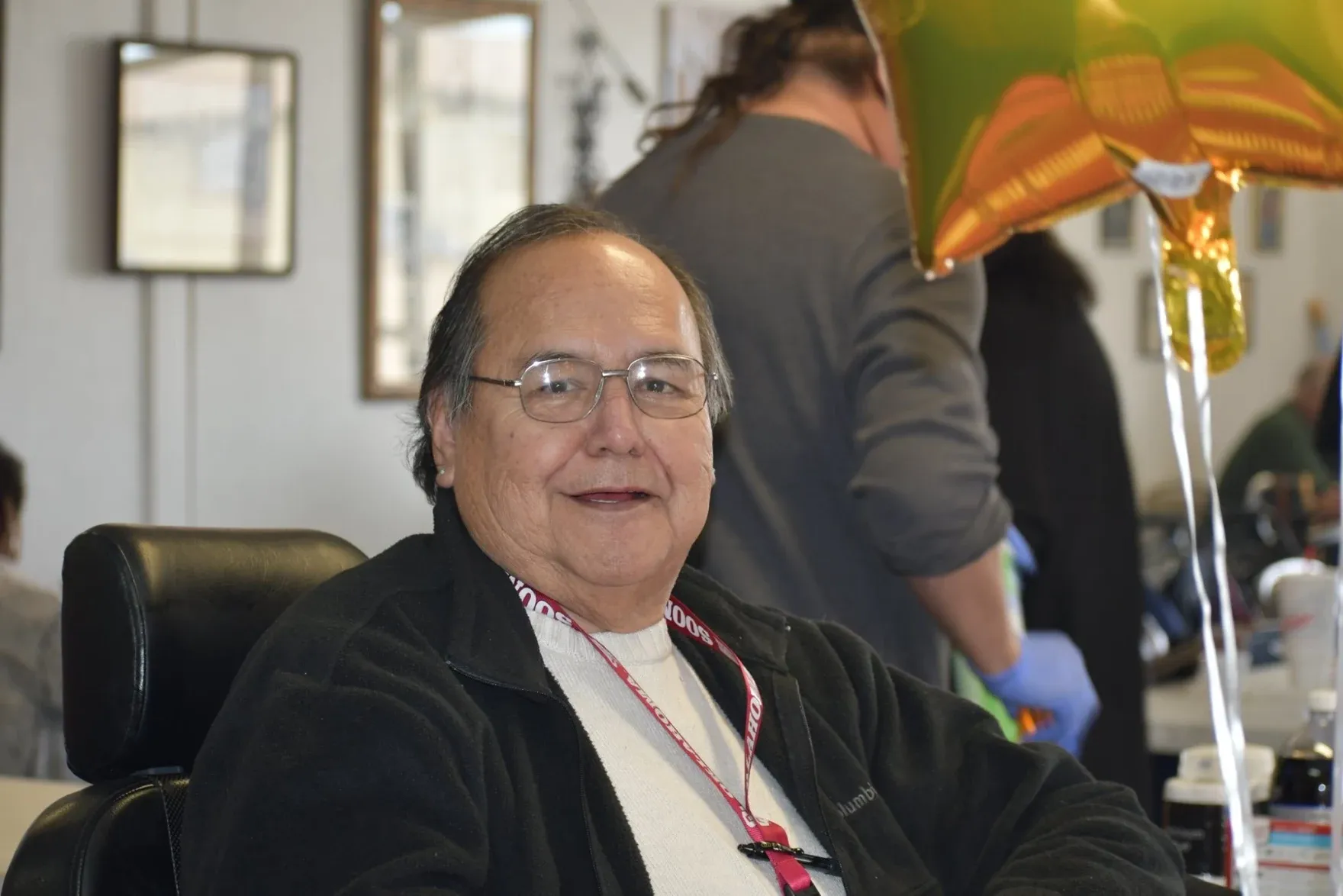

Osage Nation renews fight for reservation status post-McGirt

The Nation seeks to overturn the 2010 Irby ruling that denied reservation recognition, citing landmark Supreme Court precedent
The Osage Nation, thwarted by a 2010 federal court decision that has pinned it into a corner from which it has been unable to extricate itself, is challenging that ruling anew.
The Nation has long rued the decision in Osage Nation v. Constance Irby, Oklahoma’s tax commissioner at the time, a case that was brought under the administration of Principal Chief James R. Gray. The suit was intended to confirm the existence of the Osage reservation – and to bar the state of Oklahoma from taxing the income of Osage tribal members who work and live on that reservation.
The effort was ill-fated: The 10th Circuit Court of Appeals delivered the harsh decision that the Osage reservation had been disestablished – and based that decision on statements by historians and others who opined that all Indian reservations in Oklahoma had been disestablished despite the U.S. Congress never having formally voted to dissolve them. The case was appealed to the U.S. Supreme Court, which declined to hear it.
In a motion filed Jan. 2 in U.S. District Court for the Northern District of Oklahoma, the Nation argues that the broad conclusion in the Irby case was turned on its head by the McGirt case, in which the Supreme Court held in 2020 that the Muscogee Nation was never disestablished because Congress never explicitly dissolved it – a hard requirement for disestablishment.
Under McGirt, “There is only one place we may look: the Acts of Congress,” Justice Neil Gorsuch wrote in the McGirt decision.
McGirt, the Osage Nation insists, repudiated Irby in its entirety but thanks to court rules governing the relitigation of matters that have already been decided, the tribe has been unable to effectively and retroactively challenge it.
“Most fundamentally, Irby is a stain on the integrity of the United States, which 150 years ago induced the Nation to cede its prior sovereign territory [in Kansas] with the promise of a permanent reservation where the Nation could exercise its sovereignty and govern itself, and it creates an anomalous exception to the consistent application of the rule of law (as set forth in McGirt),” the Jan. 2 motion says.
In other words: 10 years after Irby, McGirt made new case law – but the Osage Nation is the only eligible tribe in Eastern Oklahoma that cannot avail itself of that new law by exercising its sovereignty in matters of criminal and other law.
The Nation has tried to piggyback on at least two criminal cases as a friend of the court to get Irby overturned, but the Oklahoma Court of Criminal Appeals has deflected those attempts.
In one case, the appellate court said that the criminal case was final before McGirt was decided and that McGirt did not retroactively void final state court convictions.
In the other, the criminal appeals court refused to address whether McGirt applied to the Osage Nation – because the Irby case precluded it due to “stare decisis,” the legal notion that one cannot relitigate that which has already been decided; that legal precedent must be honored.
Two of the appellate judges noted in the latter case that if Irby is to be reversed, that decision “must come from the federal courts.”
The Jan. 2 motion seeks to do just that.
Irby, the Nation’s motion says, is at odds with McGirt on many levels. The Irby decision acknowledges that Congress never explicitly disestablished the Osage Reservation as McGirt requires, and that it also noted that the Osage Allotment Act of 1906 contained other hallmarks and hints that disestablishment was not intended: It allowed, for instance, the Secretary of the Interior to set aside lands for tribal purposes, it did not directly open up land for non-Indian settlers, it retained the mineral estate for the Osage Nation, it provided no compensation to the Osage Nation as was typical when other reservations were disestablished, and it provided for a form of tribal government.
“Under McGirt, the analysis would have stopped right there, with a finding of no disestablishment,” the Nation’s motion says.
Instead, the 10th Circuit Court of Appeals that decided the case in 2010 looked to other sources to decide the reservation no longer existed, citing historians who were of the opinion that all reservations in Oklahoma – including Muscogee and nine others found intact in the wake of McGirt – were dissolved by allotment acts, changes in demographics and land ownership decades after Osage allotment, and what it called “tribal consent” to allotment.
Irby, the motion notes, “did precisely what McGirt forbids:” It looked at later practices and data rather than what Congress said and did in 1906 when it passed the Osage Allotment Act.
In McGirt, Justice Gorsuch emphasized that if Congress wants to disestablish a reservation, it must do so clearly and unequivocally. “[W]ishes don’t make for laws, and saving the political branches of government the embarrassment of disestablishing a reservation is not one of our constitutionally assigned prerogatives,” Gorsuch wrote in McGirt.
In a follow-up case to McGirt, the Supreme Court found that 43 percent of Oklahoma remains tribal land thanks to lack of disestablishment, the Nation’s Jan. 2 motion says.
In essence, the motion says, using the Irby decision to treat the Osage Nation differently than other sovereign Indian nations like Muscogee and the Five Tribes, is a “manifest injustice” that is contrary to public interest.
“The harm that the Irby judgment currently inflicts on the Osage Nation cannot be overstated, and continuing to apply it prospectively, as a judgment with perpetual … stare decisis effect precluding recognition of the Osage Reservation, would make it exponentially worse,” the motion says.
“…The time has come to remove Irby as an obstacle to equal treatment and consistent application of the law, to restore the Osage Nation’s ability to fully exercise its tribal sovereignty and protect its members within its Reservation, and to restore the integrity to the Federal Government, by confirming that McGirt applies to the Osage Nation, and that the Osage Nation, like other reservations in Oklahoma, remains intact.”
No hearing dates have been set yet on the Nation’s motion, which is being litigated by Simon Steel and others with the global law firm Dentons US LLP of Washington, D.C., Eugene Bertman of Norman, and Osage Nation Attorney General Clint Patterson.
“The decision in Osage Nation v. Irby was and is completely indefensible,” Patterson said in a prepared release.
“The Osage Nation has the best case for a reservation. The Osage Nation purchased our reservation with our funds in 1872, and an act of Congress has never disestablished it.
“In their [Irby] opinion, the 10th Circuit wrote exactly that before going to some extrinsic sources of history.
“The McGirt decision highlights the flaws in the Irby decision, and this motion gives us a chance to fix those flaws.”

Sac and Fox Nation strike unique tolling deal with Oklahoma Turnpike Authority

By Katie Hallum (ᏧᏟ), KOSU
The agreement has unique stipulations. The tribe will turn over driver information for billing purposes, and in exchange, the OTA will pay $500 a month back to the tribe to cover administrative costs totaling six thousand annually.
Additionally, backlogged toll fees incurred by Sac and Fox drivers will be the sole responsibility of the individuals and not the tribe.
The agreement comes after Gov. Kevin Stitt and multiple tribes clashed over tag compact renewals as the new PlatePay system struggled to collect tolls from tribal drivers.
Notably, the Cherokee Nation recently signed a compact agreeing to pay $2 million to remove their citizens' toll fees after a tumultuous back-and-forth with the governor’s office.
Sac and Fox Principal Chief Randle Carter said he hopes his tribe is setting an example.
“As a Nation whose reservation encompasses a portion of Oklahoma’s original turnpike corridor, we know well how important this infrastructure is to daily life and commerce for both the Sac and Fox Nation and Oklahomans,” he said. “In signing this agreement, we hope to be a model to other tribal nations in how to mutually resolve the issue of electronic toll collection that replaced cash tolls this year.”
The three-year agreement went into effect in late December.

Kiowa Tribe elder, spiritual leader walks on at 70

By Sarah Liese (Twilla), KOSU
Phil Raymond “Joe Fish” Dupoint walked on Jan. 2 at age 70.
Many in the Kiowa community remember the respected elder and spiritual leader for his work as the tribe’s cultural preservation director and the principal singer for the Kiowa Black Leggings Warrior Society. He was also an officer at the Kiowa Chapter of the Native American Church.
Chairman Lawrence SpottedBird remembered him in a statement, saying, “He touched the hearts of all his Kiowa People and countless Native People nationwide through his songs and example of what it is to be a true Kiowa Spiritual leader.”
Bacone College awarded him an honorary degree, or a Doctorate of Humane Letters, in 2020 for his Kiowa knowledge of history, philosophy and ceremonies.
In an interview with Red Buffalo Images, Dupoint reflected on receiving the title and told a story about how he called “one of his brothers” to discuss it. Dupoint said he wasn’t sure if he deserved this title because he only had a high school education. But Dupoint said his brother told him, “You had the best classroom, and you had the best teachers—and that was the elders.”
KOSU interviewed DuPoint last year for a story about the cultural significance of Handgame in his tribal nation. At that time, he said he and his peers have an obligation to pass along Kiowa knowledge.
“Us older generation. We got to carry it on, but we got a lot of young people that are participating,” Dupoint said. “And so with that, well, then I know this culture is going to go on.”
Details on a memorial service Tuesday morning in Carnegie are available here.


